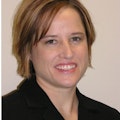Denying religious accommodations: The new “undue hardship” standard
Do you have an employee who does not want to work on the Sabbath? Or an employee who wants to wear a hijab? Or maybe you have an employee who wants a time and place to pray?
These are all examples of scenarios in which an employer’s business and an employee’s religion can intersect and create tension. When these two things are not compatible, the question becomes, “What does an employer have to do?” It's the answer to this question that was fundamentally changed by the Supreme Court recently.
Religion is a protected class characteristic
As you may know, Title VII of the Civil Rights Act of 1964 protects people from discrimination on the basis of several “protected class” characteristics, such as religion.
For religion, employers must give reasonable accommodation to employees based on “sincerely held” religious beliefs. The definition of religion is very broad and includes “all aspects of religious observance and practice as well as belief.” A belief is religious for Title VII purposes if it is “religious in the person’s own scheme of things.”
Providing reasonable accommodation is any adjustment to the work environment that will allow the employee to comply with their religious beliefs. Accommodation may entail the employer making a special exception to policies or job-related expectations for the religious individual. Accommodating religious beliefs for an employee can encompass three areas of the workplace: work schedule, job duties, and appearance requirements.
An employer may deny a request for accommodation if it would result in “undue hardship” to the employer’s business. When claiming undue hardship, the burden is fully on the shoulders of the employer to justify and prove if later challenged.
For the last 46 years, employers need only show that the religious accommodation would impose “more than de minimis cost.” If more than a de minimis cost was required, then the request was deemed to cause undue hardship on the employer’s business and could be lawfully denied. As one might imagine, this was a relatively low bar to meet.
In Groff v. DeJoy, the Supreme Court changed the standard upon which an employer can claim undue hardship when requests for religious accommodations are made by applicants and employees.1 Under the new standard, the Supreme Court requires an employer seeking to deny religious accommodation requests to demonstrate that the “burden of granting an accommodation would result in substantial increased costs in relation to the conduct of its particular business.” This is a relatively significant change.
While the Court declined to provide more guidance on this new undue hardship test, they did state the following: “A good deal of the EEOC’s [Equal Employment Opportunity Commission] guidance in this area is sensible and will, in all likelihood, be unaffected by the Court’s clarifying decision.” According to the Court, “Courts must apply the test to take into account all relevant factors in the case at hand, including the particular accommodations at issue and their practical impact in light of the nature, size, and operating cost of an employer.”
How should employers handle things?
First and foremost, be prepared for requests for religious accommodations and, when confronted with such concerns, be mindful in your approach given the new standard.
Next, look for ways to easily accommodate individuals and remove the tension. Is wearing a hijab, for example, going to be a substantial increased cost? If not, provide the accommodation with little to no discussion or conflict. The less this becomes an issue, the less likely it is to create liability.
Finally, if the accommodation request is going to cause undue hardship, be meticulous in your analysis of the impact on your “conduct of business.” Document the details of your analysis, particularly how this request is an undue hardship, and ensure you have workplace evidence to support it. You may also want to reach out to a professional for specific guidance.
During and since the pandemic, we’ve seen an uptick in religious accommodation requests nationwide. It would be a mistake to write off this new ruling as no big deal or something that will not affect you. It could, and wouldn’t it be better to do your due diligence and avoid liability?
Reference
- Groff v. DeJoy, Postmaster General. No. 22-174. Argued April 18, 2023. Decided June 29, 2023. https://www.jacksonlewis.com/sites/default/files/2023-06/SCt-Groff-v-DeJoy22-174_k536.pdf
Editor's note: This article appeared in the March 2024 print edition of Dental Economics magazine. Dentists in North America are eligible for a complimentary print subscription. Sign up here.
Rebecca Boartfield is HR compliance consultant and Tim Twigg is president of Bent Ericksen & Associates. For more than 30 years, the company has been a leading authority in human resources and personnel issues, helping dentists successfully deal with ever-changing and complex labor laws. To receive a complimentary copy of the company’s quarterly newsletter or to learn more, call (800) 679-2760 or visit bentericksen.com.
About the Author

Rebecca Boartfield, SHRM-SCP
Rebecca Boartfield, SHRM-SCP, is an HR compliance consultant for Bent Ericksen & Associates. For more than 40 years, the company has been a leading authority in human resources and personnel issues, helping dentists successfully deal with ever-changing and complex labor laws. To learn more, call (800) 679-2760 or visit bentericksen.com.


